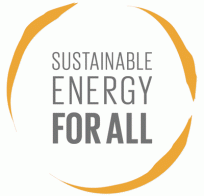SEforALL, UC Davis and Swaniti Global announce partnership to build Council for Critical Minerals Development in the Global South
Sustainable Energy for All (SEforALL), Institute of Transportation Studies at University of California, Davis (ITS UC Davis), and Swaniti Global on May 23, 2024 announced a partnership to build a first-of-its-kind platform for Global South countries on critical minerals for energy transitions.
The platform – Council for Critical Minerals Development in the Global South – will bring together Global South countries into a unique collaborative partnership to ensure equitable minerals value chain development globally as well as access to clean technologies for securing their own energy transitions.
The partnership was announced with a launch webinar, which brought together key policy-makers from the Governments of Ghana and India, the African Union Commission, UN Trade and Development as well as experts including the Initiative for Responsible Mining Assurance (IRMA) and the Intergovernmental Forum on Mining, Minerals and Sustainable Development (IGF), to discuss priorities with regard to critical mineral development with a focus on local value creation and community benefits sharing, and opportunities for South-South cooperation.
To meet climate goals and deploy clean energy at scale, a recent assessment by the International Energy Agency indicates an overall doubling of demand for critical minerals, with the growth factor being as high as 8 times for minerals like Lithium, between 2023 to 2040.
The Council will focus on both mineral producer and consumer countries in the Global South with ambitions to accelerate clean energy adoption and build local industries integrated within global and regional supply chains for energy transition solutions, including solar PV, energy storage and electric vehicles. Its key objectives include:
- Guide South-South cooperation on critical minerals based on data-driven insights;
- Facilitate knowledge-exchange on best practices and lessons learnt related to critical transition minerals development, including policy design, technology access, investment mobilization, and mechanisms for ensuring a just and equitable energy transition for local communities;
- Catalyse bilateral and multilateral partnerships including trade for Global South countries between themselves and with other major global economies to support global and sustainable value chains; and
- Formulate a common vision and policy approach including opportunities for developing regional supply chains for Global South countries on critical minerals that will help support a just and equitable energy transition.
The Council is anticipated to be comprised largely of public sector representatives from countries (e.g. from the Ministries and State Entities responsible for critical minerals development). It will also actively engage with non-governmental entities within focus countries and globally, including think tanks, local civil society groups, academia, the private sector and financing institutions.
“It is imperative that the Global South plays a central role in global supply chain of critical minerals, benefiting equally in industrial development and job creation. We need to address the development of critical minerals with a focus on both justice and security of supply. This cooperation is especially important for ensuring that local communities share the benefits,” said Damilola Ogunbiyi, CEO and Special Representative of the UN Secretary-General for Sustainable Energy for All, and Co-Chair of UN-Energy, while delivering the opening remarks.
Speaking about the launch of this partnership, Dr. Sandeep Pai, Director, Swaniti Global said, "Critical minerals are key ingredients of the new green economy. Securing critical mineral supply chains for the Global South is important not only for economic development in these countries, but is also key for meeting global climate targets. We are delighted to partner with SEforAll and UC Davis to launch the first ever platform on critical minerals for Global South countries in their energy transition."
Dr. Aditya Ramji, Director, Global South Clean Transportation Centre, UC Davis, added that, “It sets the foundation for a unique multilateral partnership framework of how Global South countries can collaborate to ensure equitable mineral value chains as well as access to clean technologies for securing their own energy transitions. This partnership between UC Davis, SEforAll and Swaniti Global aims to provide technical support to developing countries to enable a more equitable and fair participation in global value chains.”
A transition towards clean energy presents an opportunity for the Global South countries to be active participants in technology supply chains and reduce imports, create local value and jobs and escape the historical “resource curse”.
"Critical minerals should be extracted sustainably, under no circumstances should they be exported in raw form, and we should have indigenisation of industry," said Hon. Samuel A. Jinapor, Minister for Lands and Natural Resources, Ghana, while elaborating on the country’s green minerals policy framework at the webinar.
Countries also underscored the need for partnerships to address several knowledge and technology gaps. Dr. Veena Kumar Dermal, Joint Secretary, Ministry of Mines, India said that “India is looking at partnerships which will help build know-how on processing and value addition for critical minerals.”
Speakers echoed that various economic and social mechanisms required for critical mineral development can be addressed by South-South collaboration. “The markets need to be open and transparent and at the same time we need to ensure that green industrialization policies are inclusive,” said Miho Shirotori, Director, Division on International Trade and Commodities, UN Trade and Development.
Dr. Marit Kitaw, Interim Director, African Minerals Development Centre, African Union, stated that a South-South collaboration will help make the key pillars of the African Mining Vision, including linkages and partnerships, skills and technology, value addition, and mitigating social and environmental impacts, more successful.
Stressing the need for inclusive processes and community benefits, Greg Radford, Director of the Secretariat at IGF, said “Stakeholder consultation needs to be massively improved, especially in areas of local value addition.” Progress towards ESG compliance is already being made as “many Global South countries are demanding more and using forward-looking tools to showcase their adherence to the highest standards globally," said Aimee Boulanger, Executive Director, IRMA.
Learn more about the Council for Critical Minerals Development in the Global South here. The recording of the launch webinar is available here.



